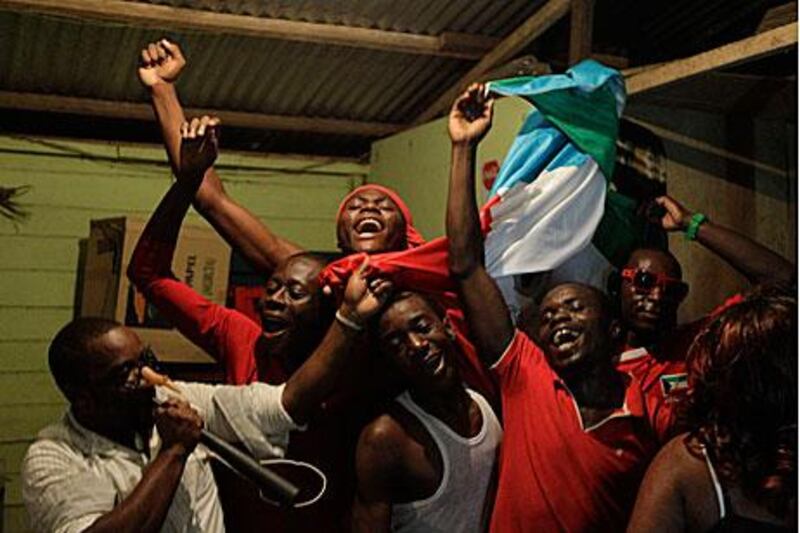MALABO // Over the next three weeks, stars like Manchester City's Yaya Toure and Didier Drogba of Chelsea and will showcase their talents at Africa's premier football tournament in Gabon and Equatorial Guinea.
For the tiny central African nation of Equatorial Guinea, co-hosting the African Cup of Nations is an opportunity to show the world its rapid progress after just over a decade of development fuelled by an oil boom.
However, the football fanfare masks some underlying problems.
The country is locked in a "harsh reality of repression and grinding poverty", said Daniel Bekele, the Africa director of Human Rights Watch.
Evidence of such development is everywhere, kick-started by the discovery of oil in 1994. Planes arriving in the capital Malabo fly over a sprawling plant on the coast - testimony to the more than 300,000 barrels produced per day. Most goes to the US.
A modern motorway cuts through the jungle. Cranes and hard-hatted workers pepper the roadside as multi-story government ministries, hotels and apartment blocks replace the once-thick vegetation. Banks and oil companies are also here.
Offices for the Bank of the Central African States are rising out of the undergrowth. Mobil has a block taking shape near a major turnpike. Before 1994, this country of less than 700,000 people on the edge of Africa was a backwater.
And yet, poverty is as obvious as the multi-million dollar construction projects.
Ordinary life is a struggle for regular people. The majority live below the poverty line and tens of thousands have no access to electricity or clean water, say UN and World Bank figures.
The people selling fruit, dried nuts and flags in markets near the stadiums don't see much of the billions of dollars in annual revenue the oil brings in. Many of them live in shacks.
And yet across the road from the stadium around a dozen gleaming new apartment complexes have been built. They appear empty and only there to hide the shanty towns behind them.
"The government of Equatorial Guinea hopes that the recently completed luxury hotels, golf resorts, and shiny monuments will disguise the grinding poverty that dominates the lives of most people in the oil-rich nation. They must not be allowed to get away with this deception," Tutu Alicante, executive director of EG Justice, a non-governmental organisation focused on improving transparency in his native Equatorial Guinea said.
It all raises serious doubts about whether co-hosting a major international tournament is the most appropriate path to modernisation.
Mr Bekele said these events can be a way "to charm foreign visitors and try to impress the media, but these are superficial and don't withstand scrutiny".





